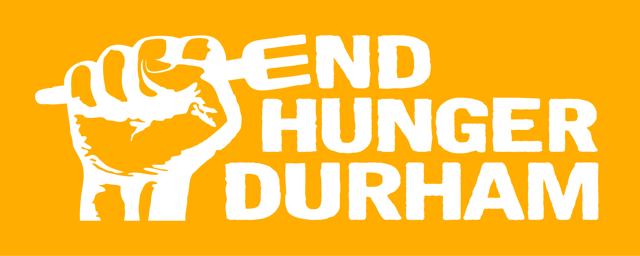HEALTHY SENIORS
April is National Senior Hunger Awareness Month.
In 2022, almost 7 million seniors aged 60+ faced hunger.
As part of the Durham Partnership for Seniors, End Hunger Durham works to increase collaboration among organizations that serve older adults and to promote greater awareness among the public about the problem of hunger among low income seniors. Visit our Policy & Advocacy page to learn more about helping our seniors.
In 2022, End Hunger Durham began efforts to deliver in-person, congregate meals to seniors. Delivering food in this manner, provided the opportunity to listen to resident concerns, share health and nutrition information, and promote a community of neighborliness. Our first such event was held at Preiss-Steele with food provided by our long time partner – Bowick’s Ark Catering. Meals were hand delivered to the doors of those who could not attend, thanks to the help of resident volunteers.
Senior Nutrition Accomplishments
POLICY: In 2018, we held informational sessions for social service agencies and generated buzz for the NC DHHS to apply for a waiver for the Elderly Simplified Assistance Project (ESAP). This initiative rolled out in 2021 and has streamlined the application and recertification process for adults 60+ to enroll in SNAP.
COMMUNITY ORGANIZING: Our work spawned the Golden Life Partnership, which organizes residents in low-income apartment complexes to improve their health and well-being, starting with adequate nutritious food and healthcare. We hosted programs called Healthy Seniors and Food Talk. We worked in Durham Hosiery Mill Apts., Preiss-Steele, and Forest Hills Heights and other senior housing sites.
LOCAL PLANNING: We introduced food and nutrition as a critical consideration for the Master Aging Plan being developed for Durham. The Community Support & Health System / Senior Hunger & Nutrition working group has set numerous objectives under the goal to “Ensure access to sufficient nutritious food.”
INFORMATION AND REFERRAL: In collaboration with NCCARE360, EHD is the main agency receiving referrals for emergency food. We quickly send them to the food services that can best meet their needs.
Transportation for Seniors
EHD worked with Go Durham to launch a free Senior Shuttle that currently transports senior residents of DHA housing communities directly to Walmart at Glenn View Station. This service helps the seniors avoid long rides in public buses. We believe this will also limit exposure to the broader population, decreasing the risk of contracting COVID-19.
This program currently serves the following sites:
- Forest Hill Heights
- J.J. Henderson
- Preiss-Steele
- Morning Glory
- Hosiery Mill
- Veranda at Whitted School
- Morehead Hills
- East Main St (former Oldham Towers)
- Carver Creek
- Scattered Sites
Screen and Intervene: Addressing Food Insecurity Among Older Adults
Developed by FRAC and the AARP Foundation, this free, online course is designed for health care providers and community-based partners working with older adults. While the focus is on older adults, much of the information and many of the strategies are relevant across the lifespan.
In just 60 minutes, learners will learn how to:
- Define food insecurity;
- Identify the risk factors for food insecurity among older adults;
- Identify the negative health outcomes that food-insecure patients may face;
- Use the Hunger Vital Sign™ screening tool; and
- Connect individuals to SNAP, additional nutrition resources, and community partners.
The course also includes downloadable resources that can readily be used in clinical settings. Continuing education credit is available, too, for medical doctors, dietitians, and other health care professionals.
